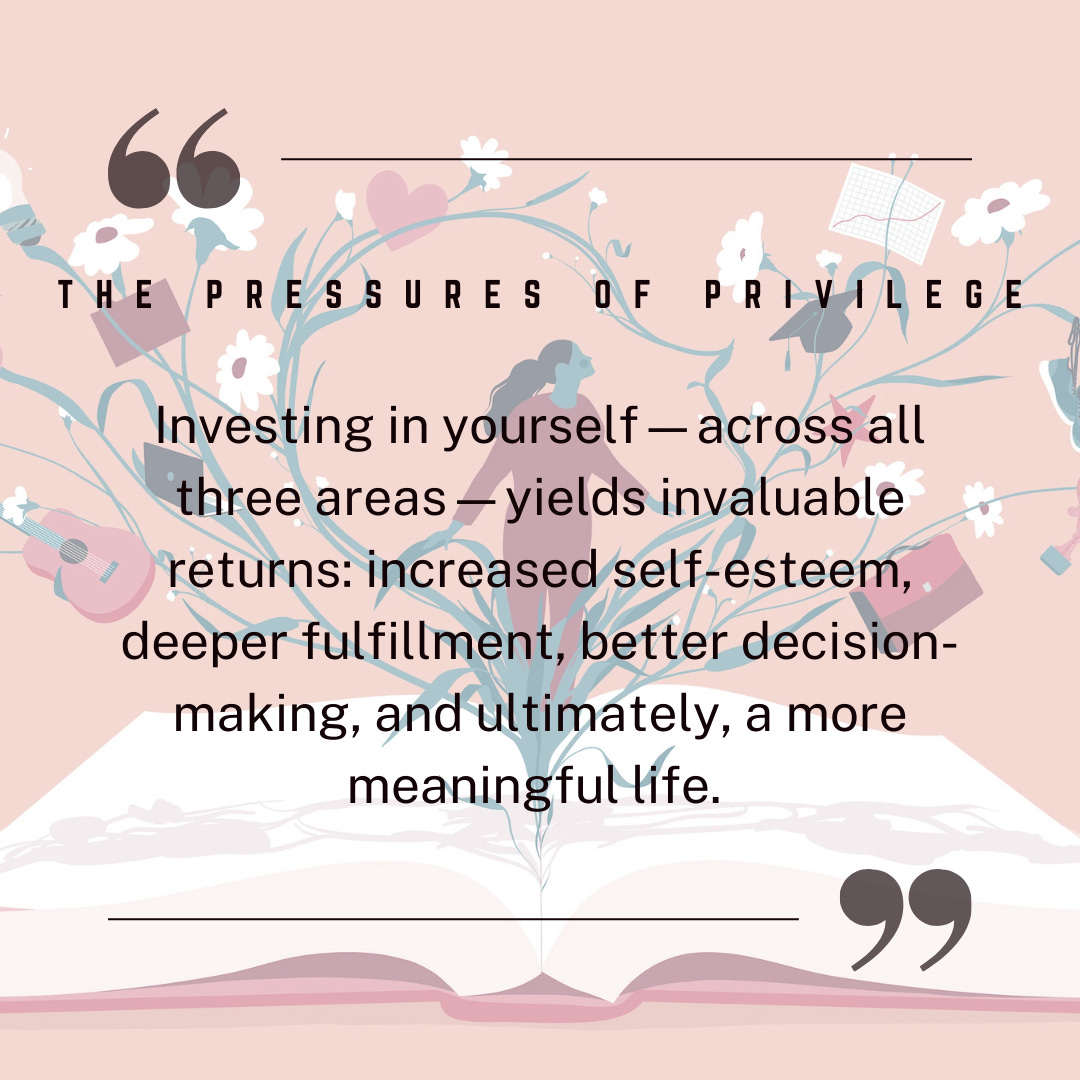Upgrade to paid to play voiceover
In my younger years, any mention of emotions, self-help, or personal development was met with ridicule. Years later, when I lived in Switzerland, telling someone I saw a therapist was tantamount to announcing I belonged in a mental asylum. Yet mentioning a visit to the local pastor was perfectly acceptable.
Investing in personal growth was never prioriti…
Keep reading with a 7-day free trial
Subscribe to The Pressures of Privilege to keep reading this post and get 7 days of free access to the full post archives.




